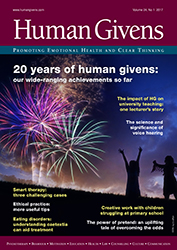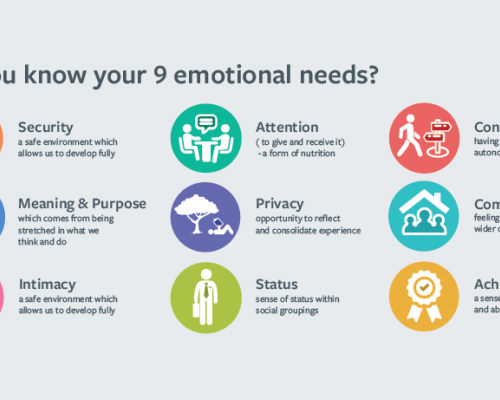Some thoughts on corruption and servility
Ivan Tyrrell considers how the miasma of corruption we live in affects many aspects of our lives, often in subtle ways.
CORRUPTION is inherent in this imperfect world: an insidious current running through the most serious challenges faced by humankind, connecting them all. It seems to me that the more we know about how corrupt many of our institutions and influential individuals are, the more the moral fabric based on trust is corroded, and this is affecting the mental health of the world’s population.
We mainly use the word ‘corruption’ to describe dishonesty or fraudulent conduct by someone in power, typically involving bribery or the enrichment of the corrupt person in some way, and undermining the integrity of affected individuals and groups. Corruption is also the term used when the original meaning of a word is changed to one that is erroneous or debased; the word discrimination, for instance, used to refer to the ability to differentiate but is now corrupted mainly to mean unjust prejudice against someone, usually on the grounds of race, class, gender or age. The noun ‘corruption’ comes from Latin – com, ‘with’ and rumpere, ‘to break’. So perhaps we can view corruption as dishonest and debasing behaviour that breaks trustworthiness and good reputation with others. A civilised society cannot evolve without trust, which is why, when public trust in government declines, it is such a tragedy – just as when one loses trust in relatives, friends or colleagues.
Unfortunately we have all become used to hearing about the extent of corruption in our financial, religious, political, academic and sporting institutions. We are still affected by the financial scandals, involving £trillions, that arose from the subprime mortgage racket run by American banks and resulted in the near-complete collapse of the world’s banking system; and by many other banking scandals before and since, like the Barclays and RBS involvement in the Libor rate manipulation. Corrupt practices by multinational energy companies and the arms, agrochemical and pharmaceutical industries are entrenched. We are acclimatised to the appalling cover up of widespread child sex abuse by churches. The bribery for access, expense frauds and ‘gravy training’ practised by many MPs is common knowledge, as are the giant worldwide scams that politicians, bureaucrats and industrialists create to cream wealth from taxpayers whilst avoiding paying tax themselves. Under the presidency of Sepp Blatter, FIFA, the governing body of association football, was involved in wire fraud, racketeering and money laundering. Meanwhile, the report of the Iraq Inquiry into the Iraq war, also referred to as the Chilcot Inquiry, is, as I write, still not published, and so little do we trust authority nowadays that the delay is commonly regarded as due to corrupt influence being wielded behind the scenes.

Rarely are the people involved in corruption held to account in law because, in many countries, they are the Law. Foreign travellers to kleptocratic countries in Africa, the Middle East, Central Asia, China and post-Soviet Russia are exposed to everyday corruption that is blatant and cruel in its effect. In such places, the lives of ordinary people are daily made difficult and miserable by corrupt police and officialdom, driving many, particularly the young, into the arms of fundamentalist movements that offer simpleminded, often brutal solutions to their plight. Such corruption is likely to be the main cause of the spread of violent extremism in the Middle East, Africa and elsewhere that is beginning to spill into Europe. The ‘Arab Spring’ was a failed uprising against such systematic thieving. It quickly collapsed. (The astonishing story of modern kleptocracy and the rise of terrorism is chillingly laid bare in a book by Sarah Chayes1, senior associate in the Democracy and Rule of Law Programme at the Carnegie Endowment for International Peace.)
The role of conditioning
I contend that conditioning is to blame for corruption – conditioning about territorial frontiers, racial prejudice, what to consume, various political and religious dogmas and social trends. We are not as free as we like to think we are. Our own conditioning is hard for us to see because our fixed ideas, prejudices and automatic responses are trained into us slowly, first by our family and peers, then by the wider culture: education, media and those trying to dominate us by persuading us to vote for them or buy their products or services. Uncritically held beliefs that we are not aware of, plus unchecked greed, have always divided humankind. When greed pulls our strings it stops us thinking objectively for ourselves. It steers us towards authority figures in search of what to think and do that’s ‘easiest’ or profitable. This, plus our gullibility, makes us easy to exploit. It is why people so easily accept the tyranny of corrupt authority (and authority is often corrupt because of the calibre of person attracted to – and greedy for – power).
Nearer to our immediate interests as professionals concerned with emotional health, we can see widespread corruption of a more subtle kind within the mental health services. The story of the venal relationship that developed between the American Psychiatric Association and the pharmaceutical industry is now in the public domain and common knowledge2, but the corruption of the peer review process in scientific journals is less well known. It is assumed by the general public that, if a treatment is declared ‘evidence based’, then there is an objective basis for it. But this is not so, as revealed in a statement that the esteemed editor of The Lancet, Richard Horton, made over 15 years ago: “The mistake, of course, is to have thought that peer review was any more than a crude means of discovering the acceptability – not the validity – of a new finding. Editors and scientists alike insist on the pivotal importance of peer review. We portray peer review to the public as a quasisacred process that helps to make science our most objective truth teller. But we know that the system of peer review is biased, unjust, unaccountable, incomplete, easily fixed, often insulting, usually ignorant, occasionally foolish, and frequently wrong."3
We can be sure that nothing has got better in the intervening years (indeed, only recently the writer of a letter published in The Psychologist pleaded for insulting peer reviews to stop: “The pressures of the academy – the ever-increasing competition for journal pages and funding – understandably creates a fierce sense of competition. We need to ensure this competition does not spill over into hostility”4). And yet it is academic peer-reviewed published papers that still determine what the NHS can offer members of the public who are deeply depressed, or suffering from debilitating anxiety disorders or an addiction.
Quango canker
Wherever an individual, organisation or government action undermines the ability of people to get their innate needs met, we see corruption of the body politic (an apposite metaphor that likens the nation as a corporate entity to a human body). In the UK, we have a system of ostensibly quasiautonomous non-governmental organisations (known as quangos), funded by taxpayers and not controlled directly by central government. Their remit is wide-ranging and some will be widely recognised as doing valuable work – national galleries and museums are quangos, for instance. While their nature may vary – some have small committees meeting only a handful of times a year while others have multi-million pound budgets and employ thousands of people – a lot of them are advisory or watchdog bodies, supposedly giving expert, independent advice to government ministers on a variety of matters. They are often in receipt of funding or other support from government, and many are accused of bureaucratic waste and excess, as they spend freely with little accountability and little to show for it. These types of quangos don’t create any wealth; instead, they tend towards parasitism – surviving off taxpayers. Huge salaries are paid to senior officials in many of these organisations.

The main method by which watchdog quangos exert control is through creating rules and regulations that have to be followed so that the quango can approve what those within their orbit of influence do. Of course, rules and regulations are necessary, otherwise one would have anarchy, but the rules should be few enough to allow for maximum possible freedom, fairness, creativity, production, profit and enjoyment. More than that produces inefficiency and waste, reduces freedom, slows down the economy, bloats the legal system and frustrates employers and employees everywhere. Unfortunately, that is what we tend to see when target setting becomes the means via which regulations are enforced, resulting in desperation to meet those targets by any means (such as cutting down ‘waiting times’ within the NHS by changing the way in which this is calculated). It promotes what I term target obsession disorder (TOD), a seriously disabling condition that can sweep through organisations. Managing by targets is never a good idea because it creates a false purpose, one separate from the job in hand.
We probably all have our own salutary experiences or anecdotes of unhelpful Quango Rule. I once met a teacher who told me that at a school where she had worked, the most popular and effective teacher there was severely marked down by an Ofsted team because she told stories to the children in her class – and she was therefore ‘off curricula’. Yet it was her storytelling that kept the most challenging children motivated so that they behaved well and got good exam results. This initiative-crushing, top-down control undermined her morale and the effectiveness of the whole school.
Psychotherapy and corruption
In the world of psychotherapy, it was this kind of target-obsession that enabled cognitive behavioural therapy (CBT) to steamroller on. In 2006, the New Labour government, influenced by the National Institute for Health and Care Excellence (NICE) and academics wedded to ‘evidence-based’ theories, inaugurated the Improving Access to Psychological Therapies (IAPT) programme, with CBT the main intervention to be used. Its ‘therapy by numbers’ tick-box approach suited the Whitehall target-obsessed culture. But it seems now that IAPT has proved a disaster, despite politicians and academic supporters of the scheme, and the managers who earned a living managing it, claiming that it had a 40 per cent success rate. On examination it turned out that the ‘4 out of 10 recovered’ statistic applied only to the 12,000 or so who had actually finished their therapy – and these made up just nine per cent of the 130,000 originally assessed. A third of patients dropped out of the scheme after one session. Many others were deemed ‘unsuitable for treatment’, whatever that means.5 It is no wonder that critics doubt the scientific credibility of the whole enterprise.
When Sweden made CBT the main plank of its mental health care system, it spent two billion Swedish Krona training people to deliver it. But when they followed up with outcome research it was found that CBT “had no effect whatsoever on the outcome of people disabled by depression and anxiety”.6 What is more, the treatment approach made a significant number of patients’ symptoms worse. So, in 2012, the Swedes abandoned CBT. Luckily they were not in a system that prevented them from acting on what they
had found to be true – that CBT did not work reliably and often made people worse.
The view from the human givens perspective
Any organisation that operates from a centralist philosophy and that believes it is right to take power to itself and have control over others’ lives is going against nature. Forcing people to accept an excess of invasive rules and regulations impinges directly on a fundamental human need: that of feeling one has autonomy, volition and a degree of personal control over events. It undermines our ability to act on what seems to be true and necessary in order to serve the circumstances and get a real job done. In the long run this is dangerous. The EU, for instance, has, in effect, subjugated over 500 million people. A quote often attributed to Hitler and made, of course, in a different, highly reprehensible context, serves equally well to convey how this was done: “The
best way to take control over a people and control them utterly is to take a little of their freedom at a time, to erode rights by a thousand tiny and almost imperceptible reductions. In this way, the people will not see those rights and freedoms being removed until past the point at which these changes cannot be reversed.” This is in tune with the stated thoughts of the founding father of the EU, Jean Monnet, who decided that Europe’s sovereign nations should be guided towards becoming a ‘superstate’ without their people understanding what was happening. He believed that this should be accomplished by successive steps, each disguised as having an economic purpose but which would irreversibly lead to evercloser union and central control by an unelected, irremovable elite cadre of bureaucrats.6 And this vision came to pass. Even those who support the EU accept that it has massive failings. By switching away from the organically developed approach to governance called ‘common law’, which evolved over many centuries in England and the United Kingdom, to the tyrannical top-down law-making approach developed in the EU, where any unregulated activity is regarded as tantamount to being illegal, we are having more and more of our freedoms usurped. (At the time of writing, the outcome of the referendum on staying in or leaving the EU was not known.)
Servile minds
In ancient times slaves were violently rounded up, transported and sold. Now we are captured more peacefully, brainwashed into becoming slaves of multinational corporations and governing bodies. We live in a country that has institutionalised cowardice, because many people fear to take responsibility for their own actions under threat of prosecution for infringing obscure rules, and of the fulfilment of other needs being compromised (such as the ability to keep a roof over their heads). In principle this is no different from when a man is forced to do wrong because his family is being held hostage and they will be killed unless he complies. Micro-management is necessary only for highly technical manufacturing processes, such as designing, constructing and installing aircraft engines, where a slight fault can be catastrophic. But the current obsession with caetextic micromanagement – institutionalised ‘control freakery’ – is stymieing those organisations where it is not needed, thereby ensuring a clumsy approach to staff, customers and whoever else the organisations relate to. Such behaviour can always be seen when the leaders are divorced from doing productive work themselves.
Although we are told we live in a democratic country and that the government is accountable to the electorate, somehow our rulers have turned this around so that, as Kenneth Minogue points out in his masterly work, The Servile Mind,7 we become accountable to them. This is a form of corruption too: a sign of despotism. None of us wants to think we are corrupt, so the most telling example of why corruption exists is found in the human tendency to self-justification. When we deceive ourselves and let fear prevent us from standing up to tyranny, corruption fuelled by greed expands into every aspect of our lives, like a slowly spreading virus.
And spread it will. As Kenneth Minogue writes, “Western life early in the 21st century remains remarkably pleasant and agreeable. Many qualifications would have to be made to this proposition. But amidst an untroubled material abundance, we commonly live long lives and have the freedom to pursue most projects that interest us. Most of us have no fear of authority, however irritating the increased regulation we must endure sometimes is. It is our very insouciance about the rising levels of surveillance and control, and the decline of integrity, that reveal how little wariness there remains in our understanding of our civilisation as free. The arrival of real servility will be something of a surprise to us.”7
Corruption, from the human givens perspective, can be seen as anything that causes healthy relationships to break down, anything that prevents innate emotional needs from being met, whether from each other, from the environment or from work. Any practice that stops others from getting what they need to flourish is corrupting.
Fortunately there are still shining examples of ways to meet needs that accord with high integrity. For instance, Fred Kiel, an executive coach, who for more than 30 years has worked with Fortune 500 chief executive officers (CEOs) and senior executives, collected data over seven years on 84 CEOs and compared their companies’ performances with the personal ratings they received from employees. He found that those seen as ‘high-integrity’ had a multi-year return on investment of 9.4 per cent, while that of ‘low-integrity’ CEOs was just 1.9 per cent. Kiel comments that, although the high-integrity CEOs often appeared to care little about their own career success or personal remuneration, they all achieved much more than CEOs who were driven by these things. Staff engagement was 26 per cent higher in high-integrity organisations, too.8 Kiel identifies the ‘traps’ that the high-integrity CEOs did not fall into: they didn’t foster a cult of personality; they didn’t dodge accountability; they didn’t micromanage; they got rid of poor performers and kept their focus on what was important, instead of being distracted by ‘small fires’; they had self-awareness and knew good communication involves listening.
There are, of course, individual examples of high integrity. The question is, do we have enough time and volition to evolve sufficiently as a species to work constructively together – and thereby avoid extinction? The kind of human beings needed to do this could not be more different from those we see so many of today – devoted mainly to their own ‘wants’ and indifferent to the destiny of the human race.
This article first appeared in "Human Givens Journal" Volume 23 - No. 1: 2016
 Spread the word – each issue of the Journal is jam-packed with thought-provoking articles, interviews, case histories, news, research findings, book reviews and more. The journal takes no advertising at all, in order to maintain its editorial independence.
Spread the word – each issue of the Journal is jam-packed with thought-provoking articles, interviews, case histories, news, research findings, book reviews and more. The journal takes no advertising at all, in order to maintain its editorial independence.
To survive, however, it needs new readers and subscribers – if you find the articles, case histories and interviews on this website helpful, and would like to support the human givens approach – please take out a subscription or buy a back issue today.
References:
- Chayes, S (2015). Thieves of State: why corruption threatens global security. Norton.
- Whitaker, R and Cosgrove, L (2015). Psychiatry Under the Influence. Palgrave Macmillan.
- Horton, R (2000). Genetically modified food: consternation, confusion and crack up. Medical Journal of Australia, 2000, 172, 4, 148–9.)
- Grange, J A (2016). Time for insulting reviews to stop? The Psychologist, 29, 3, 158–9.
- Moloney, P (2013). The Therapy Industry. Pluto Press.
- Booker, C and North, R (2003). The Great Deception: the secret history of the European Union. Continuum.
- Minogue, K (2010). The Servile Mind. Encounter Books.
- Kiel, F (2015). Return on Character. Harvard Business Review Press
Latest Tweets:
Tweets by humangivensLatest News:
HG practitioner participates in global congress
HG practitioner Felicity Jaffrey, who lives and works in Egypt, received the extraordinary honour of being invited to speak at Egypt’s hugely prestigious Global Congress on Population, Health and Human Development (PHDC24) in Cairo in October.
SCoPEd - latest update
The six SCoPEd partners have published their latest update on the important work currently underway with regards to the SCoPEd framework implementation, governance and impact assessment.
Date posted: 14/02/2024














